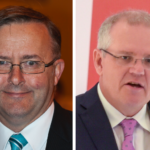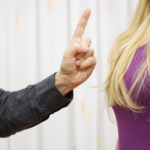Freedom From Workplace Sexual Harassment “Is a Human Right”, Says Sydney Lawyer

A High Court-commissioned independent investigation into Dyson Heydon found that six former court staff members were sexually harassed by the former judge, who worked as a justice on the bench at Australia’s highest court for a decade ending in 2013.
On making the announcement last Monday, High Court Chief Justice Susan Kiefel said the allegations were of “extreme concern” and the court believes the inquiry’s findings.
Some allegations involve women straight out of law school, working for one of the most powerful men in the legal profession at the time. These women, who were then in their early 20s, spoke of being too scared to say anything about the behaviour of the well-known judge, then in his 60s.
The revelations have been hailed as a #MeToo moment for the Australian legal profession, with further allegations against Heydon already having come to light.
One in three
“To live and work in an environment free of sex discrimination and sexual harassment is a human right – not a privilege,” Australian Lawyers for Human Rights (ALHR) president Kerry Weste told Sydney Criminal Lawyers.
The Sydney-based lawyer outlined that the Sex Discrimination Act 1984 (Cth) makes workplace sexual harassment illegal, as it gives effect to obligations Australia has agreed to follow under the UN Convention on the Elimination of All Forms of Discrimination Against Women (CEDAW).
“We call on all employers within the legal profession to ensure not only that their workplaces adhere to their legislative obligations but that they also ensure policies and practices relating to sexual harassment and address barriers to coming forward faced by victims,” Ms Weste continued.
The International Bar Association released its Us Too? Bullying and Sexual Harassment in the Legal Profession report in May last year, which detailed the results of a global survey of legal professionals that found one in three female respondents had been sexually harassed at work.
Ms Weste further emphasised that Australian employers should be especially vigilant in ensuring “young lawyers beginning their careers” are able to speak up, as they can face major “power imbalances” when entering the workforce.
Empowering voices
Peak national body Australian Women Lawyers (AWL) released a seven point strategy in July last year to address sexual harassment within this country’s legal profession. This includes compulsory training on the issue for lawyers and a better complaints reporting system.
“ALHR agrees that there should be a confidential complaints process” and “an extended timeline for conduct complaints of at least six years”, Ms Weste said, adding that in renewing their practising certificates, lawyers should have to acknowledge their commitment to ending sexual harassment.
Following the Heydon revelations, ACT Director of Public Prosecutions Shane Drumgold wrote to the Australian Federal Police on Tuesday, recommending that it open investigations into the allegations that have been levelled against the former judge by the six ex-High Court employees.
“We also acknowledge the bravery of the women victims for coming forward,” Ms Weste concluded.







